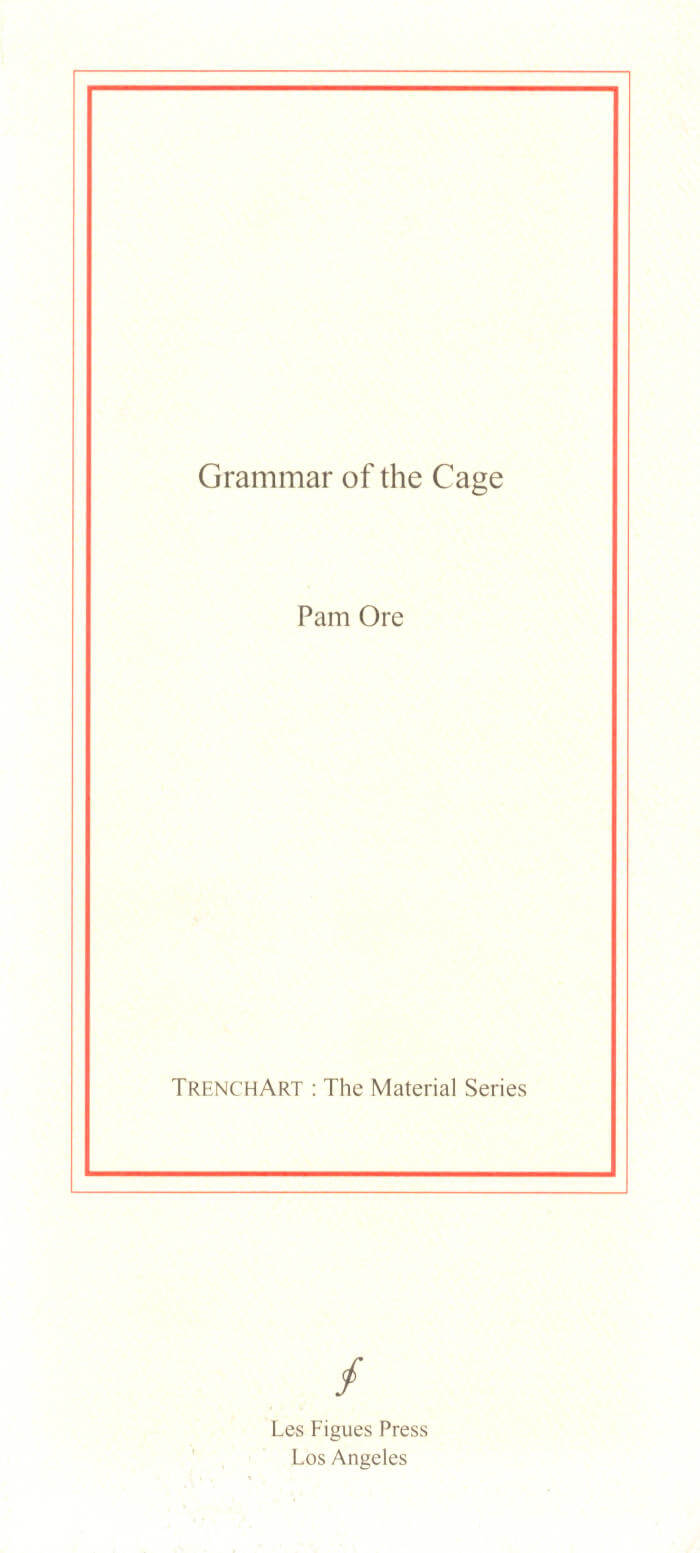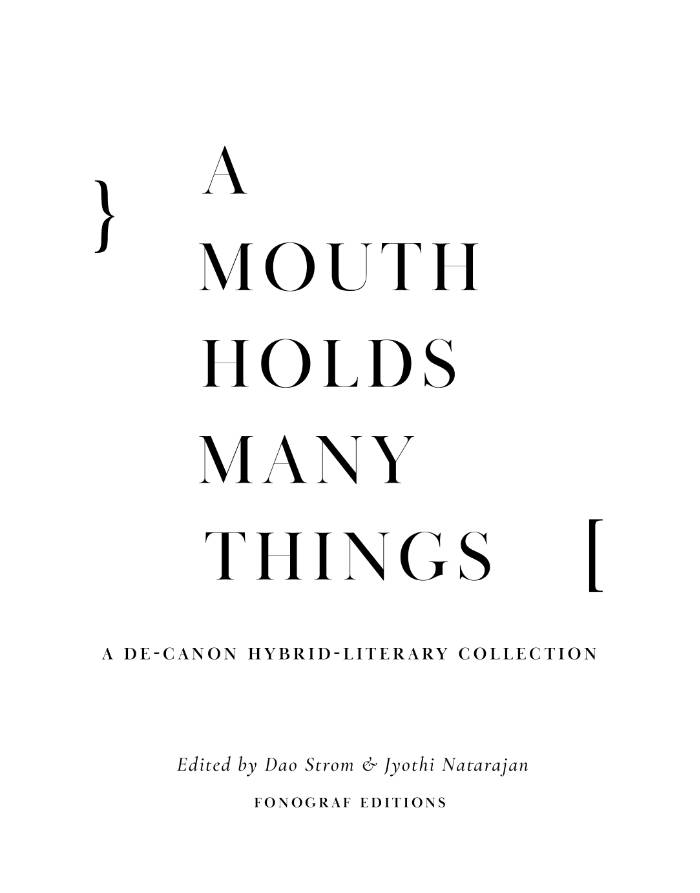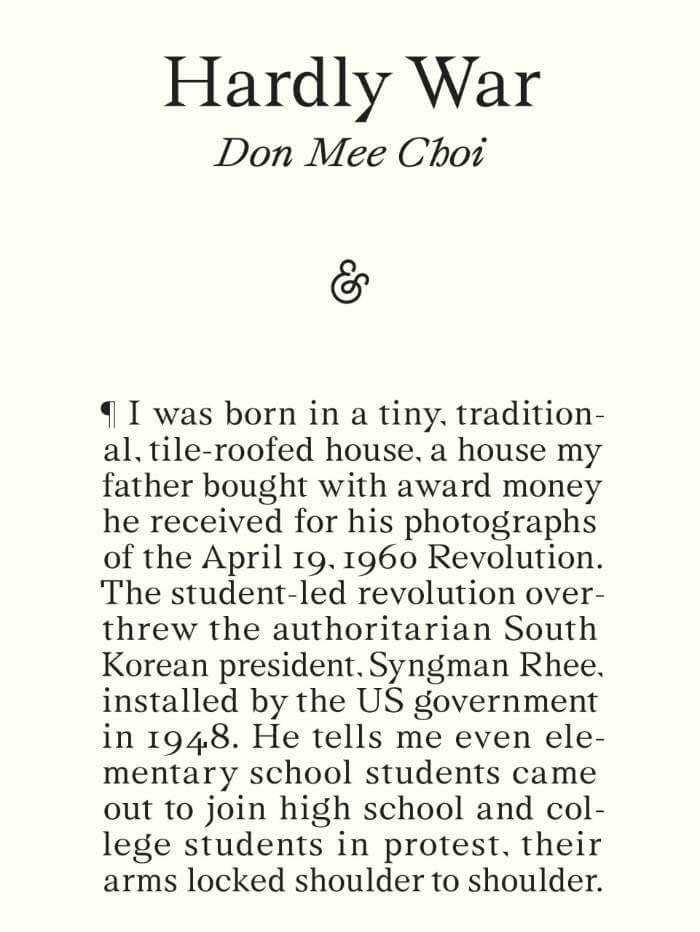
Things To Do With Your Mouth
Attempts to control the mouths of "speaking women"—17th century witches, 19th century hysterics—have taken many forms, both physical and metaphorical.
In Things To Do With Your Mouth, Divya Victor repeats, recants, and relentlessly echoes a textual meeting place for the psychic and corporeal implications of this "fear of women with excessive powers of speech and discourse," creating a cacophonous movement towards the feminist purpose of poetics. Culling language from texts as diverse as nursery rhymes and contemporary pediatric health websites, the biblical Song of Solomon and Freud's "Analysis of a Case of Hysteria," Victor confronts this long history of the "silenced mouth." Section by section, appropriated word by appropriated word, Victor relishes in the buccal opening, its capacity for words and discourse, addressing Nietzsche's claim that the world "lives on itself: its excrements are its nourishment." These words will "eat you alive, digest you, leave you scattered." Or, as CA Conrad states in his afterword, these reutterances will ultimately "liberate" us "one cough at a time. The mouth in, the mouth out, mouths training mouths around the always-imperfect O."
Language: English







